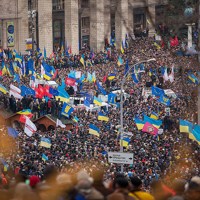
After a period of relative calm, the two recent attacks in the Russian city of Volgograd serve as a reminder that, despite the government’s pre-Olympic crackdown, Russia’s heartland remains vulnerable to militants from the Muslim-majority North Caucasus region. Although no one has claimed responsibility for the bombings of the city’s main train station and a crowded trolleybus, which together killed at least 30 people, Volgograd has suffered from years of bombings, typically carried out by Islamist terrorists from the nearby North Caucasus. Russia’s Muslim militants are especially irritated by President Vladimir Putin’s decision to hold the February Winter Olympics in […]



